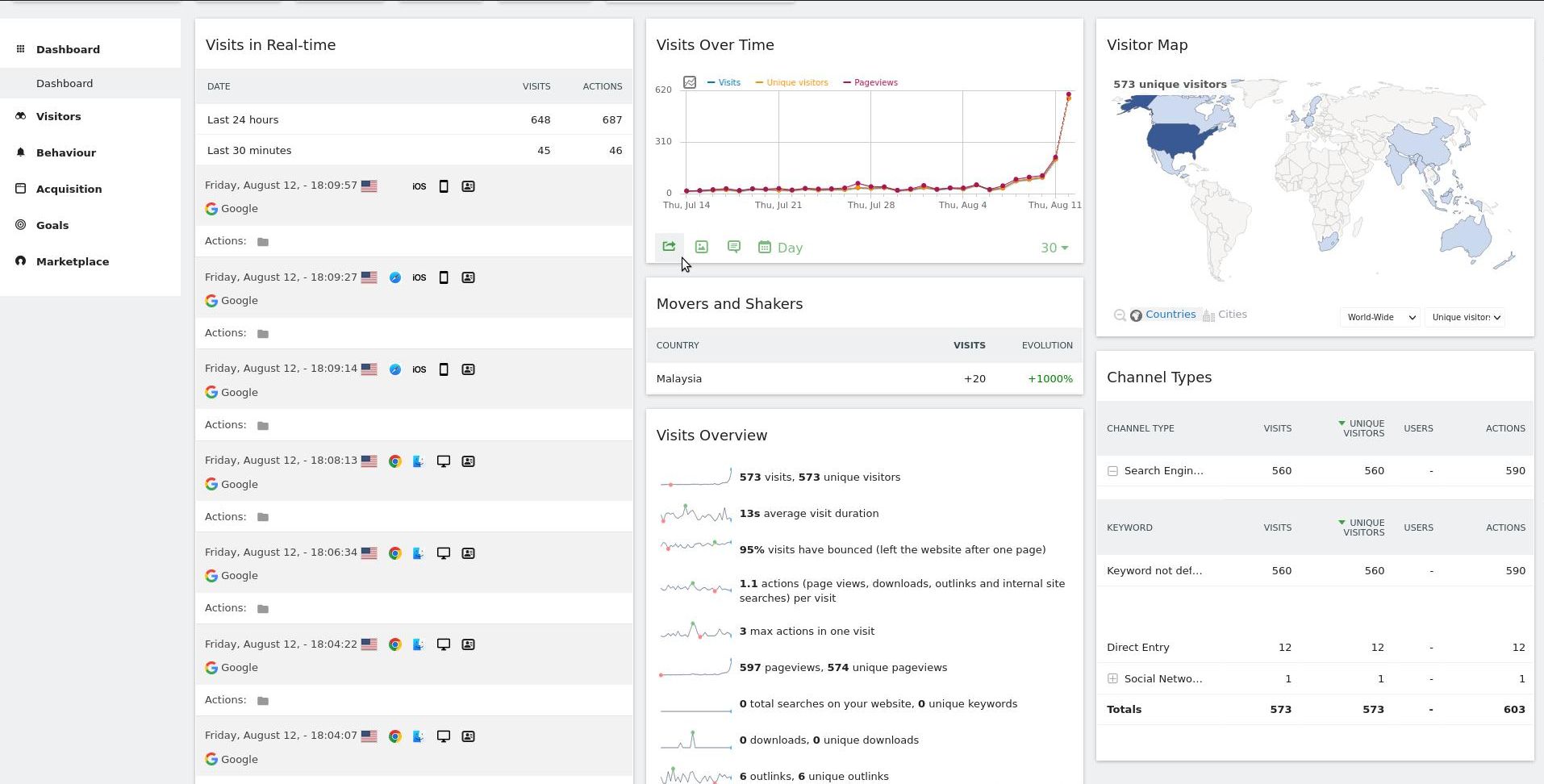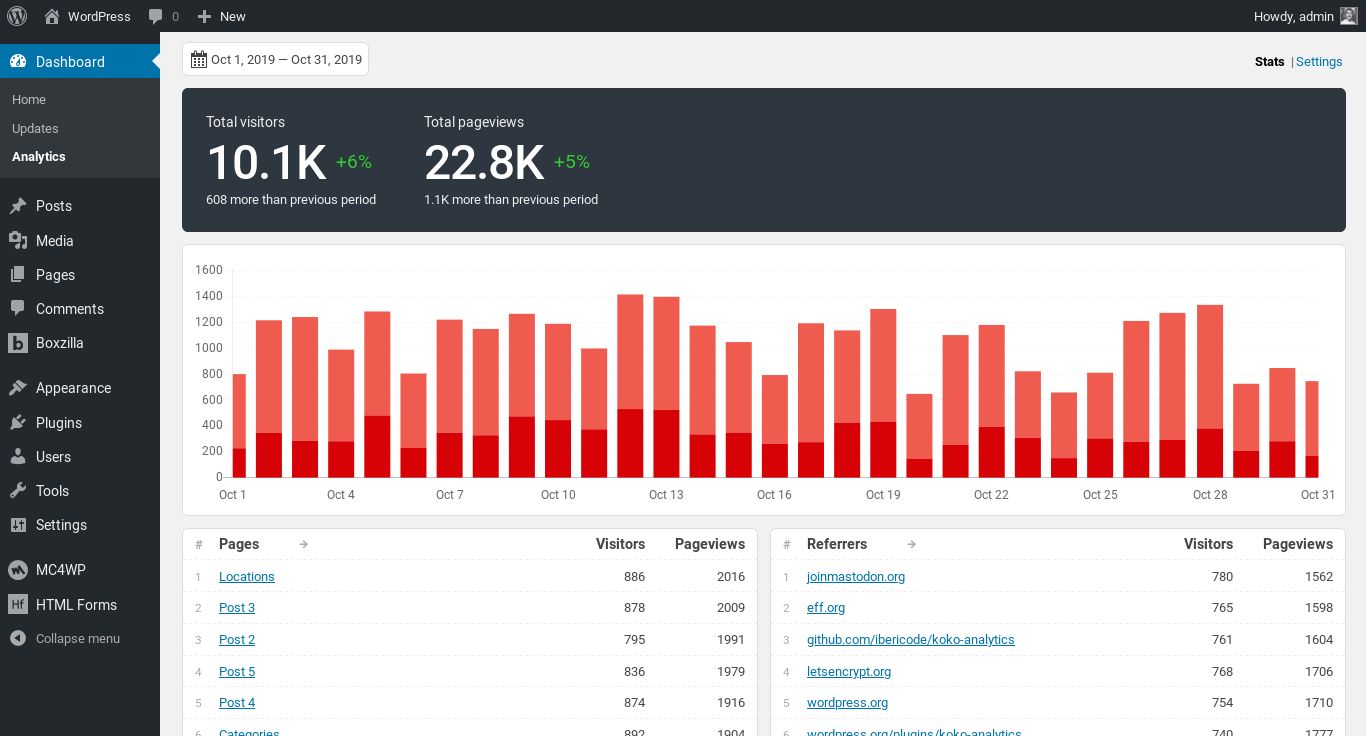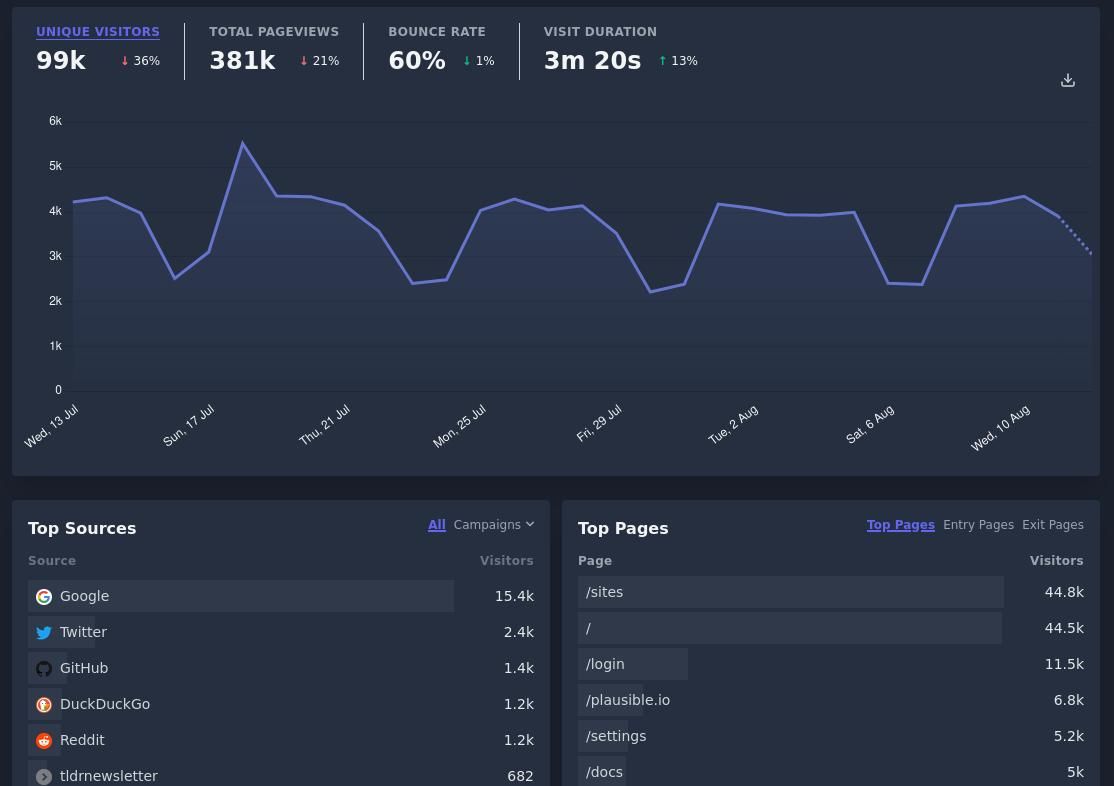3 privacy-friendly website analytics tools to avoid Google Analytics

The Internet economy exists largely because of advertising. This involves tracking website visitors between sites and building detailed profiles – the better to sell them things they don’t want or need.
With privacy-friendly Google Analytics alternative website analytics tools, you can help keep your users’ data private. Here, we will look at three.
Why do website owners never use analytics?
Analytics help website owners understand what visitors want to read on their site, how to get there, which authors and editors do a good job, and how users navigate from one page to another. This is important information because it helps website owners create better content that visitors want to consume.
Of course, analytics are also used to provide valuable data insights on customers. These may be used by the website directly for advertising or sold to other advertisers. This is not always the case, so the analysis is not always negative. However, they are not always focused on privacy.
Why you should avoid Google Analytics
Google Analytics offers all the benefits described above, but collects a large amount of personal information from website users. The service collects data from each website that the user has visited from each website where Google Analytics is deployed.
This gives ad and tracking companies unique insight into a user’s likes, dislikes, sexuality, health, and all sorts of metrics they prefer to keep private.
Even if ad blockers or other tracking disable extensions are enabled, Google Analytics may collect details such as IP address and user agent string whenever you visit a site that is part of the GA network. That information alone is usually enough to link web activity to an individual.
There are debates over the legality of such invasive surveillance, and several European governments have banned or are in the process of banning the use of the data because of its transfer to the US.
even if California Consumer Privacy Act (CCPA) And with Europe’s General Data Protection Regulation (GDPR) requiring companies to give consent to track users, many websites ignore this, as it can be difficult to implement, especially with content management systems.
Website visitors are increasingly apprehensive about companies knowingly tracking everything they do online and in the real world, and some are moving away from sites that use Google Analytics.
3 privacy-focused options to Google Analytics
Google Analytics has become a leading analytics package because it’s easy to deploy, free to use for websites, and displays an incredible amount of data. A privacy-friendly analytics package should provide website owners with the data they need to improve their website without transferring that information to any third parties.
The software should also be easy to configure. It’s up to you whether you consider these features worth paying for. There are privacy-friendly analytics out there, and here are some of the best:
1. Matomo
Mathimo Analytics, formerly known as Piwik, was launched in 2007 as a free, open source alternative to Google Analytics with a focus on user privacy. Among its features, Matomo displays real-time visitors and displays this information in text and graph form, a world map showing where visitors are coming from, and an overview of behavior on the site.
Mathimo boasts GDPR compliance, 100% data ownership, reliability and security.
Although Matomo offers paid cloud hosting for your analytics, it’s free to host yourself, and it’s very easy to set up and run on your own hardware. It works very well even on old or low-powered hardware and can handle large numbers of visitors without instability – even on a Raspberry Pi.
2. Coco analysis
If your website is on WordPress, Coco Analytics is incredibly easy to install. Simply click “Add New” in the Plugins section and search for “Koko Analytics”.
User privacy is Coco Analytics’ number one concern and you’ll find an option to enable log-based analytics in settings. This is less accurate than cookie-based analytics and doesn’t do a perfect job of identifying return visitors, but it gives your users more privacy if they opt-in.
Information is displayed in easy-to-understand graphics and when Coco is able to determine the origin of a visitor or the way they landed on your site, it will also be displayed.
No personal data is tracked and Coco is fully GDPR compliant. Data can be set to automatically delete after a certain number of days.
3. Persuasive analysis
Persuasive Analytics has been in development since late 2018 and released in April 2019. Privacy Friendly Analytics has been delayed to 10,000 monthly page views) and costs $9 per month.
Persuasive is built and hosted in the European Union and boasts compliance with GDPR and CCPA as well as privacy and electronic communications regulations. With the analytics tool, there are no permanent tags, no personal data is collected and no cookies are used.
Useful features for webmasters include creating goals, tracking events and conversions – as well as sharing your dashboard with non-login viewers.
In addition to paid hosting, you’re free to host Persuasive Analytics on your own hardware – whether it’s on your business premises or at home. There are no costs to download it and no costs to use it as you wish.
There are great privacy-focused options for Google Analytics.
Getting the information you need about your visitors doesn’t mean selling their data to advertising companies. We’ve shown you three amazing options that can provide detailed information while protecting your users’ privacy. Most importantly, they do not need to rely on external infrastructure; You can run it yourself on your own servers.
If you have requirements that none of these options meet, there are other privacy-focused analytics tools available. It may also be worth considering a separate tool for tracking your website traffic.
We offer you some site tools and assistance to get the best result in daily life by taking advantage of simple experiences



